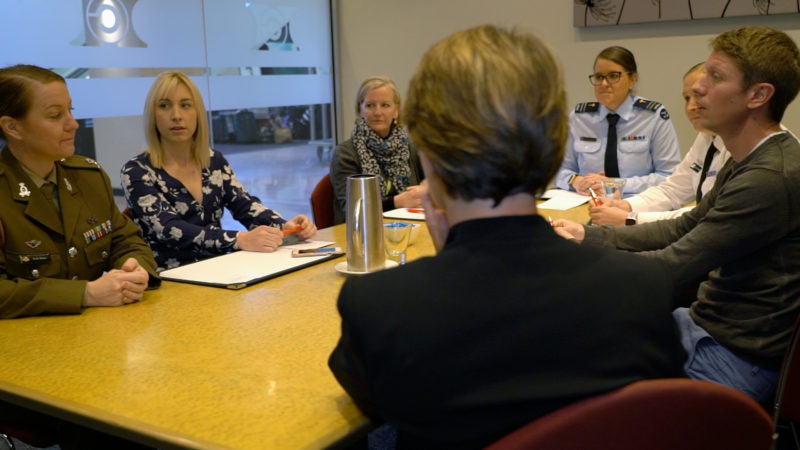ACADEMIC AND INDUSTRY HEALTH ALLIANCE TACKLE TOMORROW’S NATIONAL HEALTH CHALLENGES TODAY Trends report identifies prototyping targets for breakthroughs in digital and hybrid futures
With
Vishaal Kishore,
Professor of Innovation and Public Policy
RMIT University &
Executive Chair, RMIT-Cisco Health Transformation Lab &
Director – Impact, RMIT University, Melbourne
AUSTRALIAN HEALTH JOURNAL SEGMENT
Filmed in Melbourne | June 2025
Vishaal Kishore, a Professor of Innovation and Public Policy at RMIT in Melbourne, serves as the Executive Chair of the RMIT-Cisco Health Transformation Lab and RMIT’s Director of Impact. Led by the RMIT-Cisco Health Transformation Lab, the National Industry Innovation Network (NIIN) Health Alliance combines the best minds, technologists, industry capabilities and academic resources to solve pressing industry and social challenges through technology-driven innovation. The NIIN aims to pool insights and expertise to address national health challenges, marking its first vertical focus on health.
Last year a “Sandbox” was established to serve as a digitally rich collaboration and prototyping studio designed for privacy and security, ready to innovate in aged care and healthcare. The “Sandbox” housed at RMIT-Cisco’s Health Transformation Lab is a digitally-enabled mock care setting where researchers, startups and health system professionals work together on prototypes for the future of health. The Sandbox enables a frictionless pipeline from idea to implementation. The inclusion of autonomous robotics, has created a space where the most futuristic visions for health can be trialled, tested, and translated into practice.
The Health Transformation Lab emphasises user engagement, prioritising the voices of clients and clinicians to design solutions based on their needs rather than assumptions. This practice aims to ensure that any technology developed gains traction in health systems only if it genuinely reflects user requirements.
The NIIN Health Alliance has identified urgent needs in the healthcare system, considering the rapidly evolving technological landscape. As part of their strategic planning, they reviewed nearly 10,000 articles and reports to outline pivotal trends for the future in the publication “Health x Digital Transformation Report 2024-2025”.
In this report, a significant focus has been on the implications of augmented intelligence, remote patient monitoring, digital simulations, adaptable systems, and leveraging advancements in biotechnology, aiming to prepare the healthcare sector for emerging challenges and opportunities in the coming years.
Source: Written from transcript and health transformation lab website by AUDIENCED
You Might also like
-
Access and productivity outcomes with radiology technology in Western Sydney
In Western Sydney, there is currently significant growth accompanied by a notable need for cardiovascular support due to the prevalence of related diseases. It is estimated that the population in this area will reach 6 million by 2041.
With this population growth, there is also a pressing shortage of healthcare professionals in Australia, particularly in the field of radiology, where there are not enough radiographers, sonographers, MRI technicians, and nuclear medicine technicians.
-
Most Valuable Women in Leadership 2020
ANDHealth Co-Founder and Managing Director Bronwyn Le Grice pioneered the unique non-profit industry-led model supporting Australian digital health companies navigate the commercialisation path to institutional investment and international market entry.
-
Mid-Career Nurse Leadership Program
How does a nurse navigate senior management to affect change within their organisation? It’s a gap that Australian College of Nursing is helping to fill with it’s Mid-Career Nurse Leadership Program that gives established nursing professional access to prominent leaders in nursing.



